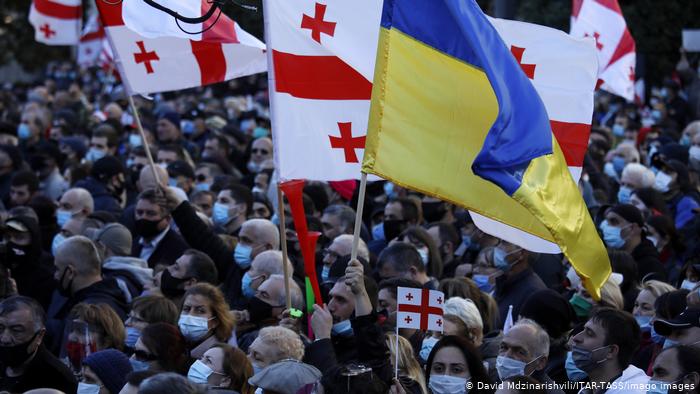
Following the 31 October parliamentary elections in Georgia, protestors took to the streets and rallied in Tbilisi to support opposition parties that have rejected the result of the elections, and demanded the resignation of the head of the Central Election Commission (CEC). The opposition parties and their supporters have reportedly also called for a fresh vote. On 8 November, hundreds of protestors gathered outside the CEC and Nika Melia, an opposition leader, stated that “Our fight will be till the end. We are not scared of anything”.[1] But what has caused this widespread outrage in Georgia?
It would be revealing to start with a retrospective glance of political events in Georgia. After many years, the ruling party, the Georgian Dream (GD), began to genuinely feel the power of the political opposition on 20 June 2019. That day, at the meeting of the Inter-Parliamentary Assembly of Orthodoxy (IAO), Sergei Gavrilov (a member of the Russian State Duma) sat in the chair of the speaker of the Georgian parliament and delivered a speech from there. To some, it was an indication of a lack of esteem towards furthering the pro-Western course of Georgia. To some, it was an obvious manifestation of adhering to the Russian policy of the current government. It seems that the change of the IAO’s agenda was approved by the leading figures of Georgian authorities, i.e. by the leaders of the GD.[2] Hence, the disillusionment and frustration with these events may have led people to come together and demonstrate in the way we have seen in the events.
In fact, the present-day tension can be traced back to the demonstrations of 20 June 2019. What the opposition was demanding at that time was for the use of proportional party lists in future elections. A few days later, Bidzina Ivanishvili, the leader of the GD, stated that the demands of the opposition would be fulfilled in the upcoming elections in 2020. This proposal, coming from the Ivanishvili, paved the way for the beginning of the negotiations with the opposition. However, contrary to what was agreed, most of the GD’s members did not accept switching to a proportional electoral system on 14 November 2019, during a vote for a constitutional amendment.[3] From that day onwards, demanding democratic reforms in the country, the opposition and its supporters began to hold peaceful protests.
The 31 October parliamentary elections using proportional lists would affect the election of 120 members of the parliament (with a total of 150-seats) and the remaining 30 in single-member majoritarian districts. In addition, the party that received less than 40.54 percent of the votes in the election could not form a government on its own. Political parties would now have to pass the 1 percent electoral threshold (instead of 5 percent) to enter the next parliament.[4] Most importantly, the low barrier of entry to the parliament meant that the future legislature would be the most factionally diverse so far in the last twenty-five years.[5] Now, the question regarding the 31 October parliamentary election was which of the 50 registered parties would be able to constitute a coalition government?
According to the October 31 vote, the GD won over 48 percent of the 95 percent of votes that have been counted as of the writing of this article. More than 50 percent of seats would have allowed the GD to form a government by itself. But the leaders of all eight opposition parties have accused the GD of stealing the election and signed an agreement indicating the refusal of their mandates. To opposition party leaders, to be a part of this parliament meant becoming part of the GD.[6] The next day, the leaders encouraged their supporters to begin demonstrations. Regarding the 31 October parliamentary elections, International Election Observation Mission (IEOM) stated that the elections “were competitive and, overall, fundamental freedoms were respected. Nevertheless, pervasive allegations of pressure on voters and blurring of the line between the ruling party and the state reduced public confidence in some aspects of the process”.[7] Meanwhile, the crowd on the streets of Tbilisi continued to increase incrementally.
A bigger demonstration was scheduled on November 8 by the opposition parties and their supporters. The plan was to gather at the center of Tbilisi. Indeed, tens of thousands of opposition supporters gathered at the center of the city, and a part of them gathered outside the CEC and called for a rerun of the 31 October parliamentary elections. However, this demonstration was met with harsh police intervention, leading to dozens of people getting injured. The opposition parties have called on Ivanishvili to dismiss the head of CEC and negotiations to begin on a fresh election.[8]
Whether the process will be moved to political and legal platforms is a question that is waiting for an answer. However, it seems that the opposition supporters continue to come out into the streets. In this case, perhaps the real question is whether the streets of Tbilisi will witness a crowd marching for a change in the government akin to what happened in the aftermath of the recent elections in Belarus and Kyrgyzstan?
*Photo: Deutsche Welle
[1] Margarita Antidze, “Georgian poliçe fire water cannon at protesters who say polls were rigged,” Reuters, November 8, 2020, https://www.reuters.com/article/us-georgia-protest/georgians-take-to-the-streets-in-tbilisi-to-protest-election-results-idUSKBN27O0MV?feedType=mktg&feedName=worldNews&WT.mc_id=Partner-Google.
[2] Giorgi Menabde, “Georgian Government Faces Worst Crisis Since 2012,” Eurasia Daily Monitor 16, no. 92, June 24, 2020, https://jamestown.org/program/georgian-government-faces-worst-crisis-since-2012/.
[3] Giorgi Menabde, “A Year in Review: Georgia’s Security and Democratic Foundation Face Tests From Within and Outside,” Eurasia Daily Monitor 17, no. 5, https://jamestown.org/program/a-year-in-review-georgias-security-and-democratic-foundation-face-tests-from-within-and-outside/.
[4] “Gürcistan’da Halk, Genel Seçimler İçin 10. Kez Sandık Başına Gidiyor,” Kırım Haber Ajansı, October 31, 2020, https://qha.com.tr/haberler/gurcistan-da-halk-genel-secimler-icin-10-kez-sandik-basina-gidiyor/268773/.
[5] Giorgi Menabde, “Are Georgians on the Verge of Electing Their Frist Coalition Government?,” Eurasia Daily Monitor 17, no. 150, https://jamestown.org/program/are-georgians-on-the-verge-of-electing-their-first-coalition-government/.
[6] Giorgi Lomsadze, “Contested Georgian vote results in opposition boycott,” Eurasianet, November 2, 2020, https://eurasianet.org/contested-georgian-vote-results-in-opposition-boycott.
[7] Organization for Security and Co-operation in Europe, “Georgia, Parliamentary Elections, 31 October 2020: Statement of Preliminary Findings and Conclusions,” November 1, 2020, https://www.osce.org/odihr/elections/georgia/469005.
[8] “Georgia: Election protesters clash with police in Tbilisi,” Deutsche Welle, November 8, 2020, https://www.dw.com/en/georgia-election-protesters-clash-with-police-in-tbilisi/a-55537824.
© 2009-2025 Center for Eurasian Studies (AVİM) All Rights Reserved
No comments yet.
-
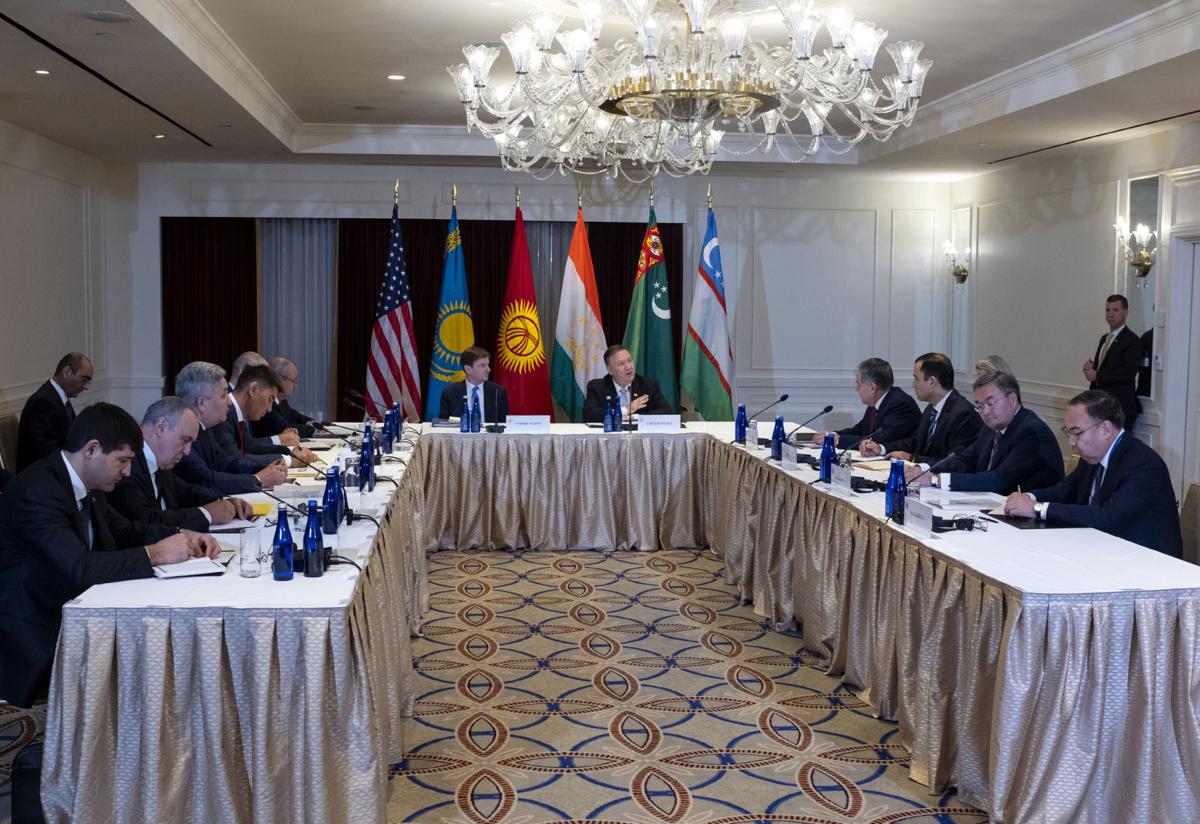 CENTRAL ASIAN COUNTRIES SHOULD OPEN UP TO THE WORLD
CENTRAL ASIAN COUNTRIES SHOULD OPEN UP TO THE WORLD
Ceyda ACİCBE 09.10.2019 -
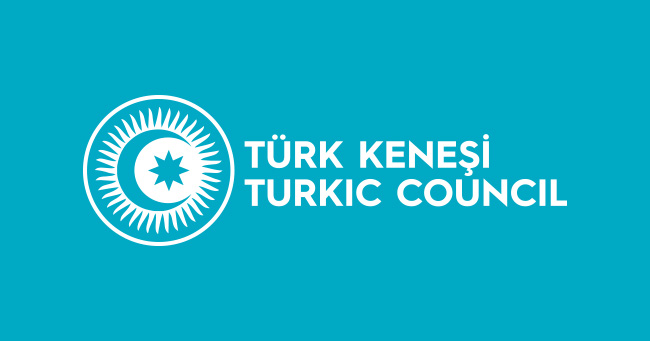 10TH ANNIVERSARY OF TURKIC COUNCIL
10TH ANNIVERSARY OF TURKIC COUNCIL
Ceyda ACİCBE 16.10.2019 -
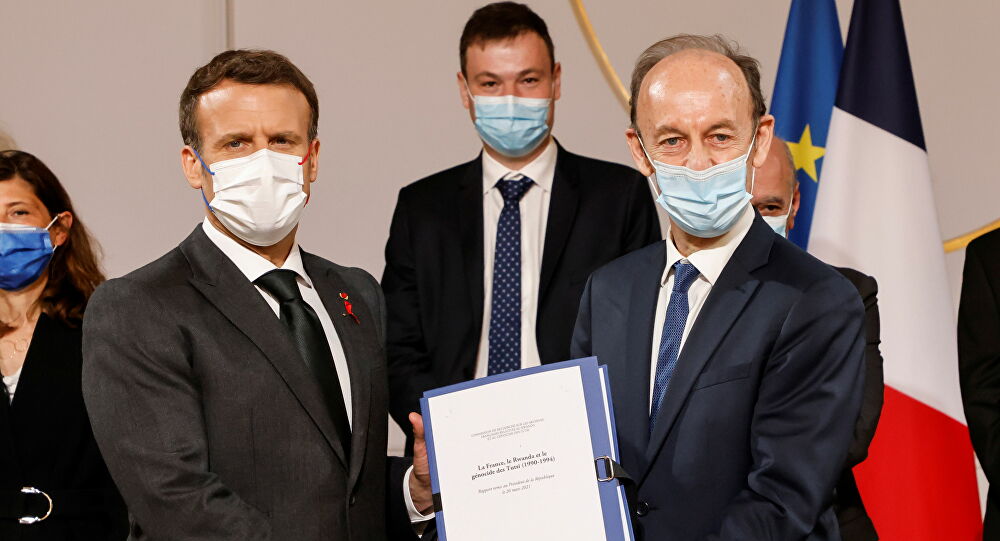 FRANCE HAS BEGUN TO SHED SOME FACTUAL LIGHT ON ITS ACTIONS IN RWANDA
FRANCE HAS BEGUN TO SHED SOME FACTUAL LIGHT ON ITS ACTIONS IN RWANDA
Ceyda ACİCBE 16.04.2021 -
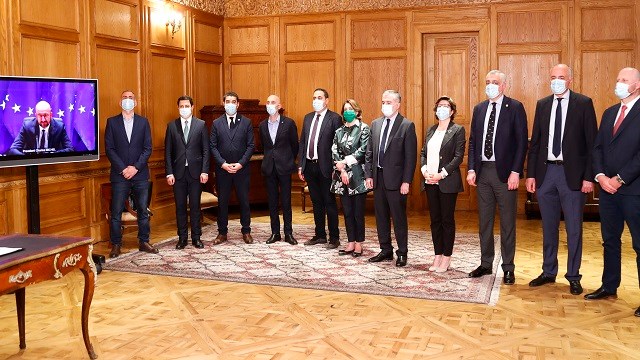 THE POLITICAL DEADLOCK IN GEORGIA HAS COME TO AN END
THE POLITICAL DEADLOCK IN GEORGIA HAS COME TO AN END
Ceyda ACİCBE 06.05.2021 -
 THE TURBULENT POLITICAL CLIMATE AND THE PROTESTS TAKING PLACE IN THE STREETS OF TBILISI OVER THE 31 OCTOBER PARLIAMENTARY ELECTIONS
THE TURBULENT POLITICAL CLIMATE AND THE PROTESTS TAKING PLACE IN THE STREETS OF TBILISI OVER THE 31 OCTOBER PARLIAMENTARY ELECTIONS
Ceyda ACİCBE 12.11.2020
-
 PASHINYAN’S QUEST FOR A NEW CONSTITUTION
PASHINYAN’S QUEST FOR A NEW CONSTITUTION
Turgut Kerem TUNCEL 02.02.2024 -
CASPIAN SEA NATURAL GAS PIPELINE ITENARY DECIDED
Alev KILIÇ 01.07.2013 -
 CALL FOR PAPERS: JOURNAL OF INTERNATIONAL CRIMES AND HISTORY
CALL FOR PAPERS: JOURNAL OF INTERNATIONAL CRIMES AND HISTORY
Ali Kenan 20.02.2014 -
RECENT DEVELOPMENTS IN SOUTH CAUCASIA – ALEV KILIÇ
Alev KILIÇ 22.01.2014 -
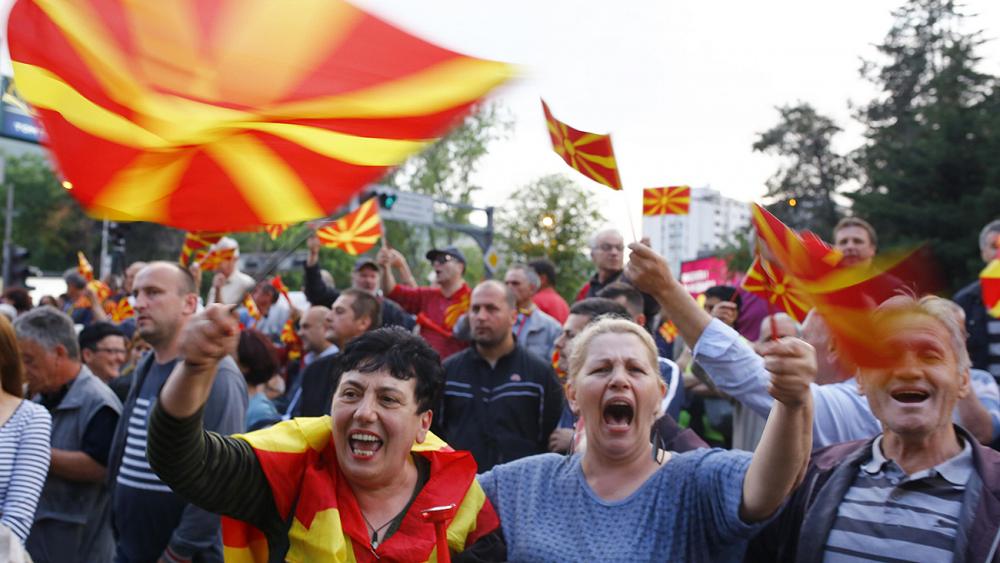 MACEDONIA BETWEEN THE EU AND RUSSIA
MACEDONIA BETWEEN THE EU AND RUSSIA
Yiğit ALPOGAN 15.05.2017
-
25.01.2016
THE ARMENIAN QUESTION - BASIC KNOWLEDGE AND DOCUMENTATION -
12.06.2024
THE TRUTH WILL OUT -
27.03.2023
RADİKAL ERMENİ UNSURLARCA GERÇEKLEŞTİRİLEN MEZALİMLER VE VANDALİZM -
17.03.2023
PATRIOTISM PERVERTED -
23.02.2023
MEN ARE LIKE THAT -
03.02.2023
BAKÜ-TİFLİS-CEYHAN BORU HATTININ YAŞANAN TARİHİ -
16.12.2022
INTERNATIONAL SCHOLARS ON THE EVENTS OF 1915 -
07.12.2022
FAKE PHOTOS AND THE ARMENIAN PROPAGANDA -
07.12.2022
ERMENİ PROPAGANDASI VE SAHTE RESİMLER -
01.01.2022
A Letter From Japan - Strategically Mum: The Silence of the Armenians -
01.01.2022
Japonya'dan Bir Mektup - Stratejik Suskunluk: Ermenilerin Sessizliği -
03.06.2020
Anastas Mikoyan: Confessions of an Armenian Bolshevik -
08.04.2020
Sovyet Sonrası Ukrayna’da Devlet, Toplum ve Siyaset - Değişen Dinamikler, Dönüşen Kimlikler -
12.06.2018
Ermeni Sorunuyla İlgili İngiliz Belgeleri (1912-1923) - British Documents on Armenian Question (1912-1923) -
02.12.2016
Turkish-Russian Academics: A Historical Study on the Caucasus -
01.07.2016
Gürcistan'daki Müslüman Topluluklar: Azınlık Hakları, Kimlik, Siyaset -
10.03.2016
Armenian Diaspora: Diaspora, State and the Imagination of the Republic of Armenia -
24.01.2016
ERMENİ SORUNU - TEMEL BİLGİ VE BELGELER (2. BASKI)
-
AVİM Conference Hall 24.01.2023
CONFERENCE TITLED “HUNGARY’S PERSPECTIVES ON THE TURKIC WORLD"









